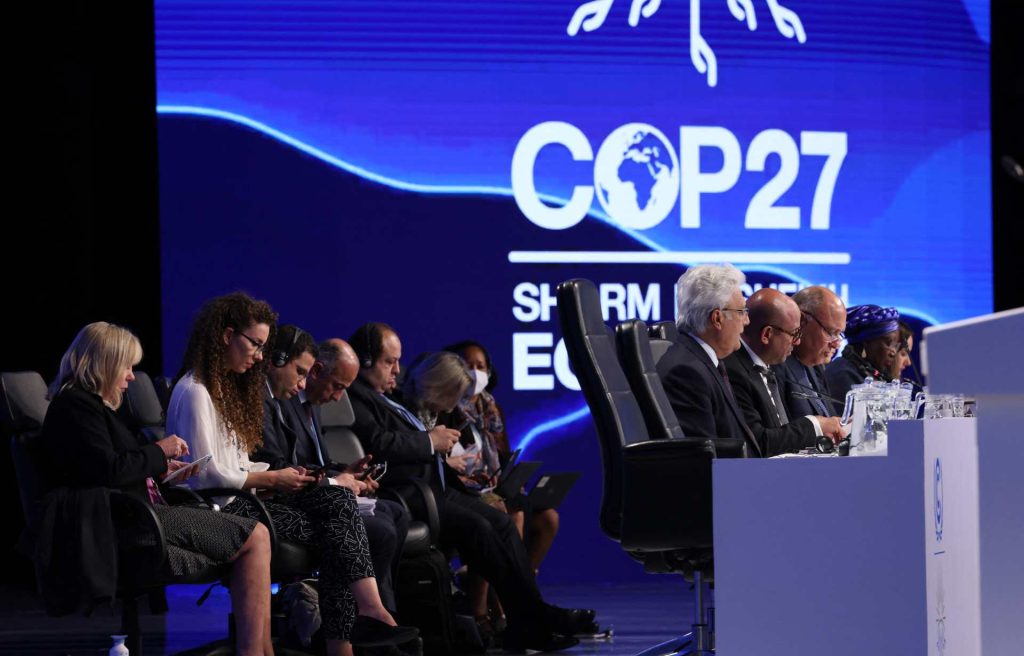
Suppose you want to impress everyone with your generosity. Donating a ton of gold to charity would certainly attract a lot of attention. But suppose you only have a kilo of gold. How could I achieve the same effect? After all, a ton sounds much better – a thousand times better, to be precise – than a kilo. In that case, you could say you’re donating a ton of gold and sugar without elaborating on the proportions.
This is precisely the tactic being employed in the world of climate finance today. During the November United Nations Climate Change Conference (COP27) in Egypt, South Africa launched its Just Energy Transition Investment Plan, based on $8.5 billion in grants and loans from the United States, the European Union, Germany , France and the United Kingdom. A week later, the United States, Japan, the EU and other governments pledged $20 billion to speed up Indonesia’s transition from coal to clean energy.
The goal of these financing packages is to enable an inclusive transition to a net zero emissions future. Indonesia and South Africa still rely mainly on coal-fired power plants that can produce cheap electricity for many more years, but also emit gigantic amounts of greenhouse gases. National power companies (and the governments that financially support them) have run up significant debt to build these plants and rely on revenue from electricity sales to service that debt. To cut emissions, rich countries are trying to encourage Indonesia and South Africa to invest in renewable energy so that dirty plants can be decommissioned quickly.
It is a laudable goal. But the ads misrepresent the volume of assistance on offer. While it may appear that South Africa and Indonesia are going to “receive” billions of dollars, the rich countries are actually promising to provide gold and sugar while deliberately trying to hide the fact that, in fact, what they They offer is essentially sugar.
Announcements of new Partnerships for a Just Energy Transition typically speak of an indeterminate mix of subsidies, regular and concessional commercial loans, World Bank loans and guarantees, and private sector capital. But these forms of financing could not be more different from each other.
Suppose, for example, that the billions of dollars mentioned in one of these ads were given to Indonesia or South Africa as a subsidy. In that case, after the money has been disbursed and used to build new clean power generation capacity, the host country would be left with an old coal-fired plant it doesn’t use, a new plant it doesn’t he owes nothing and the old debt related to the coal plant that he still has to serve.
Conversely, if the country receives a commercial loan, it will be left with the old debt and the new debt, but with only one plant to generate the income needed to service both. In reality, Indonesia and South Africa do not need rich countries to access financial markets. But to keep their finances in balance, they must keep the total amount of debt they take on stable, offsetting that new debt with cuts in other debt. For this reason, including subsidies and business loans in the same package is tantamount to mixing sugar and gold.
Concessional loans are a bit different. Although the recipient country would be left with two loans and only one operating plant, the debt is less onerous because it is cheaper than the government could have obtained on its own. These loans are generally counted in terms of the net present value of the implicit subsidy, which is a function of loan maturity and the difference between the market rate and the concessional rate (which, in none of the announced cases, is have made public).
The guarantees are quite similar. For example, if a country or a multilateral institution such as the World Bank guarantees a loan, the recipient government obtains a benefit equal to the difference between the interest rate at which it can borrow on its own account and that of the guarantor. In the case of Indonesia, for example, this difference is only 153 basis points in relation to the United States, which means that the subsidy component is a small fraction of the nominal value of the guarantee.
Like commercial loans, equity investments should not be counted, even if investors have signed on to the Glasgow Finance Alliance’s Net Zero Emissions initiative. While equity investors take more risk, they also expect higher returns. That would force recipient countries to pay off their old coal debts. y pay high dividends to make the capital investment viable.
Finally, while the World Bank loans are slightly cheaper than South Africa could get on its own, it is assumed that the ability to borrow from the World Bank was already capped. To make a real difference, Just Energy Transition programs must be accompanied by increased lending capacity from the World Bank to recipient countries. Otherwise, these countries would need to refrain from further borrowing for critical investments in water, education, and infrastructure. This would not help them reduce the costs of an energy transition.
In sum, the announcements of Alliances for a Just Energy Transition use economically insignificant amounts that only sound big. Unless this practice is stopped, future programs will contain less gold and more sugar. Just as the world has improved carbon accounting, it must learn to better account for the real impact of climate finance.
Ricardo Hausmann, former Minister of Planning of Venezuela and former chief economist at the Inter-American Development Bank, is a professor at Harvard University’s John F. Kennedy School of Government and director of the Harvard Growth Lab.
Copyright: Project Syndicate, 2023.
www.project-syndicate.org